By: Jason Morrison
Key Takeaways
- The private sector is increasingly recognized as a pivotal lever of change to build water resilience.
- During UN General Assembly/Climate Week in New York, the Water Resilience Coalition, an initiative of the CEO Water Mandate between the UN Global Compact and the Pacific Institute, showcased the transformational impacts of collective action led by Basin Champions in Brazil, India, and the United States.
- This momentum is set to spill over into COP28 in Dubai and the World Economic Forum Annual Meeting in Davos.
The Pacific Institute, at its core, works towards creating and advancing solutions to the world’s most pressing water challenges. The urgency need for this work was prominently underscored during the 78th United Nations General Assembly (UNGA) week in New York City in September. According to the United Nations, global efforts would need to quadruple to meet the water and sanitation targets set for 2030 through SDG 6.
Yet, there is cause for optimism, as an increasing number of companies are acting to be part of the solutions. The Pacific Institute’s global leadership on Corporate Water Stewardship during the past two decades recognizes that addressing the intertwined challenges of water and climate change cannot be achieved by state-led commitments alone. The private sector, with its resources, innovation capabilities, and global reach, is essential to closing the action and investment gap.
For this reason, the CEO Water Mandate, a partnership between the Pacific Institute and the United Nations Global Compact, convened business leaders from around the world during UNGA in New York to accelerate action on water-climate resilience.
Momentum building forward from historic UN Water Conference
The Pacific Institute is at the forefront of the global momentum building for corporate action on water. This momentum received a significant boost in March during the historic UN Water Conference, the first UN conference focused on freshwater in 47 years. Our expert team was instrumental in shaping discussions leading to the launch of the “Business Leaders’ Open Call for Water Action” during the UN Water Conference and now supported by a growing critical mass of multinational companies. The Open Call unites these companies to build water resilience in their operations and supply chains, while also building water resilience in at least 100 Priority Basins through collective action by 2030.
This ambition is based on the 2030 strategy of the Water Resilience Coalition, an industry-driven, CEO-led initiative of the CEO Water Mandate. Since the Water Resilience Coalition’s launch in 2020, 35 global companies across multiple sectors with combined market cap of US$4.8 trillion and operations in more than 140 countries have joined this effort. During UNGA week in New York last month, the Coalition’s ambition was launched as the Water Resilience target of the United Nations Global Compact’s Forward Faster initiative. In these ways, the Pacific Institute’s trusted thought leadership and convening power continues to set the high bar for water action.
CEO-Level Leadership from the Top
Private sector leadership on water can be most powerful when it comes from the top. With this in mind, the Water Resilience Coalition invited C-level executives to a high-level CEO Circle meeting on 19 September to demonstrate the tangible benefits of on-the-ground action. WRC Members Ecolab, AB InBev, and GSK presented case studies of the transformational collective action projects they are leading as Basin Champions in the United States, Brazil, and India, respectively.
Consider, for instance, through collective action in Brazil, Nature-Based Solutions of the São Paulo Water Fund provide the benefit of 3,999 million liters/year. Meanwhile, the WASH collective action in India is launching a project to bring equitable and climate-resilient water and sanitation to 150,000 people in two priority river basins from 2023 to 2025. The ambitious goal is set to reach a total of 5 million people by 2030.
Sanda Ojiambo, Assistant Secretary-General & CEO of the UN Global Compact and Co-Chair of the Water Resilience Coalition, called on businesses to accelerate action across the SDGs, highlighting water as a key pathway for impact.
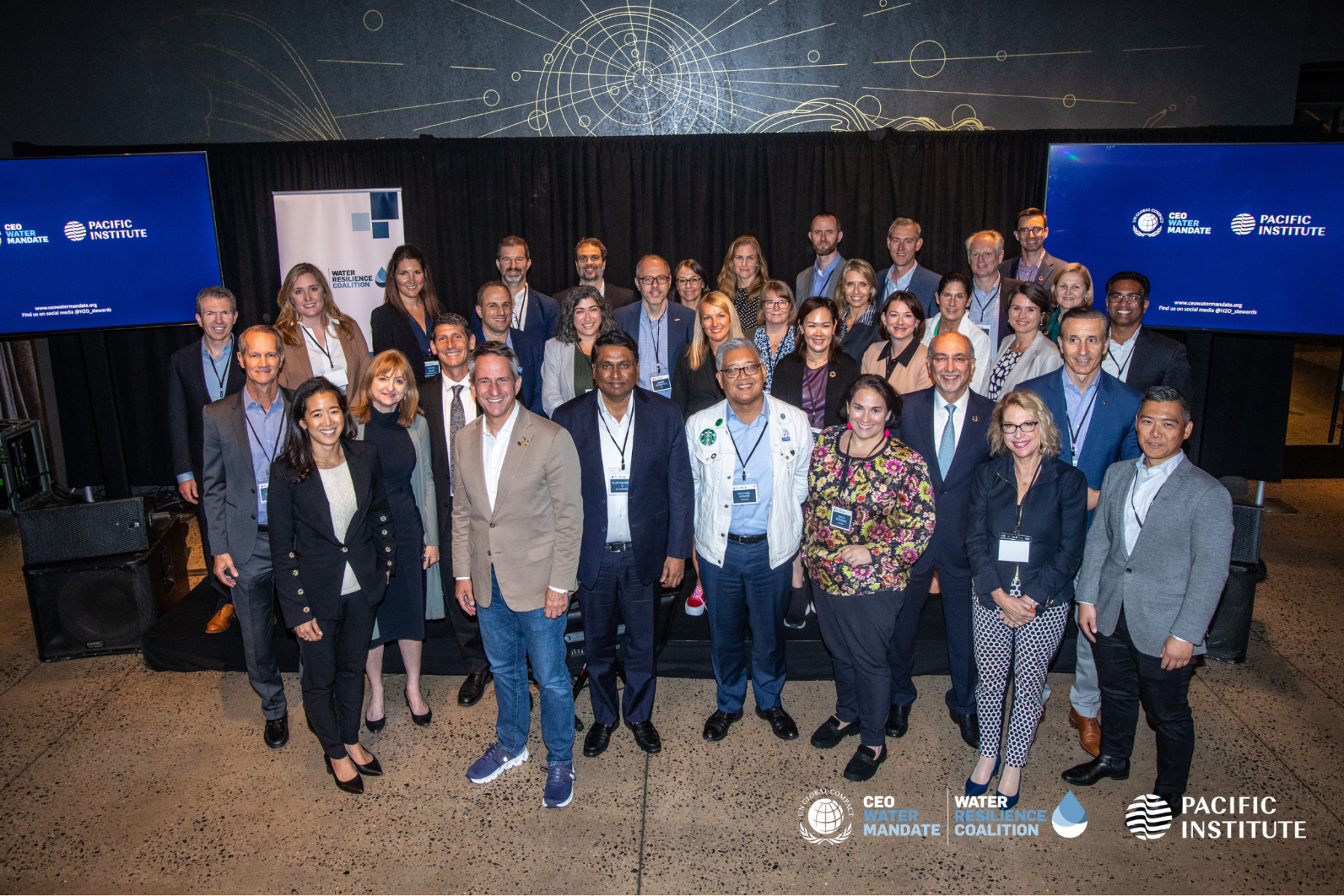
Recognizing innovative investments as a powerful tool, Water.org Co-Founders Matt Damon and Gary White joined us to showcase the impact of water investments. From household-level access to wide-scale infrastructure, they highlighted how the vehicles of Water Resilience Coalition Investment Portfolio can address all dimensions of water stress.
A true partner in water stewardship, Matt Damon appeared at two additional events led by the CEO Water Mandate: the UN Global Compact Leaders’ Summit Water Breakout Session and our Corporate Water Stewardship Half-Day.
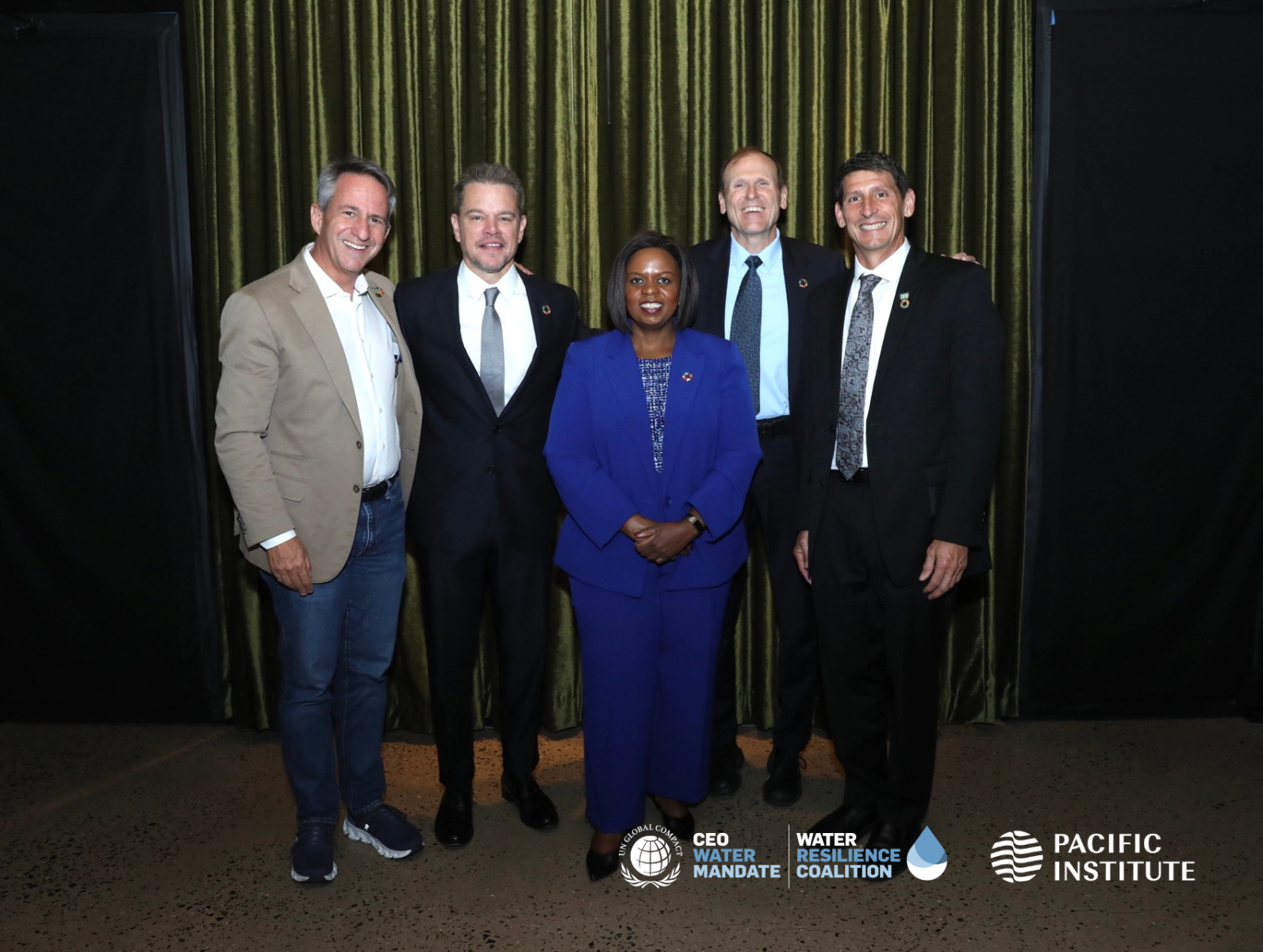
Private Sector’s Accelerated Commitment to Water Action at the Leaders’ Summit
During the United Nations Global Compact’s Leaders’ Summit, the spotlight was on the Forward Faster Initiative. Launched the day prior, Forward Faster calls on business leaders everywhere to take measurable, credible, and ambitious action in five areas – including water resilience. During the Water Session, panelists from companies committed to this WRC-aligned target highlighted the power of the private sector to take meaningful action across their direct operations and supply chains, as well as through collective action in priority basins. Over 137 early mover companies have committed to Forward Faster targets, with 55 committed specifically to the water target.
The commitment of companies to this water target is a testament to the evolving role of the private sector to be part of the broader solutions.
CEO Water Mandate’s Corporate Water Stewardship Half-Day
Our Corporate Water Stewardship side event on 20 September further demonstrated the private sector appetite for water action. With over 100 in-person attendees and as many joining virtually, the CEO Water Mandate team explored how to achieve positive water impact in the 100 Priority Basins, opportunities for impact investing, and the opportunity horizon of digital technologies.
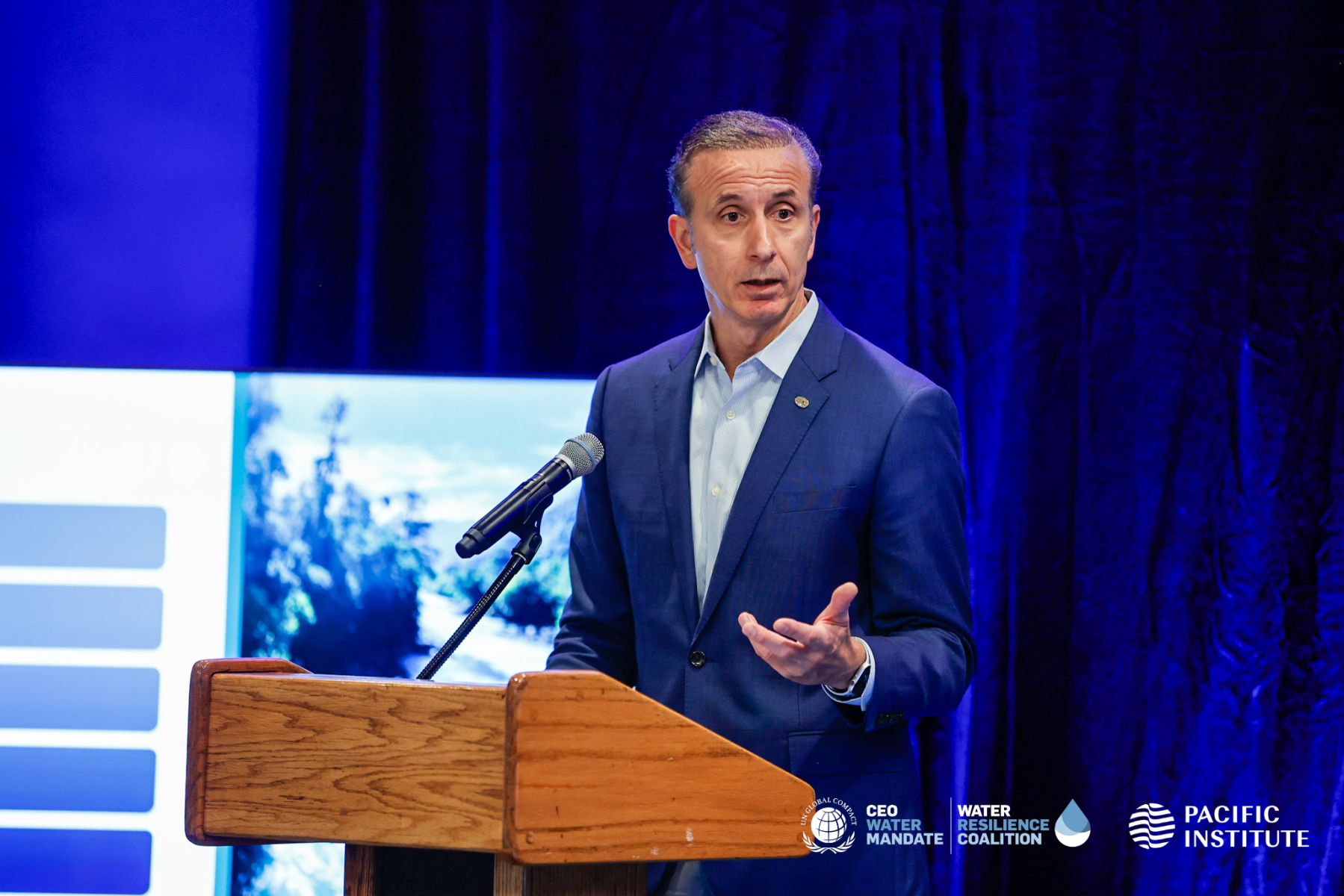
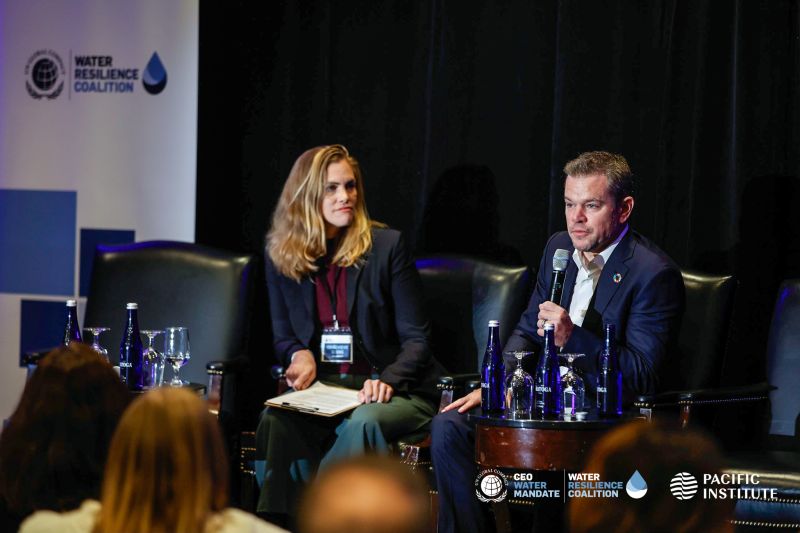
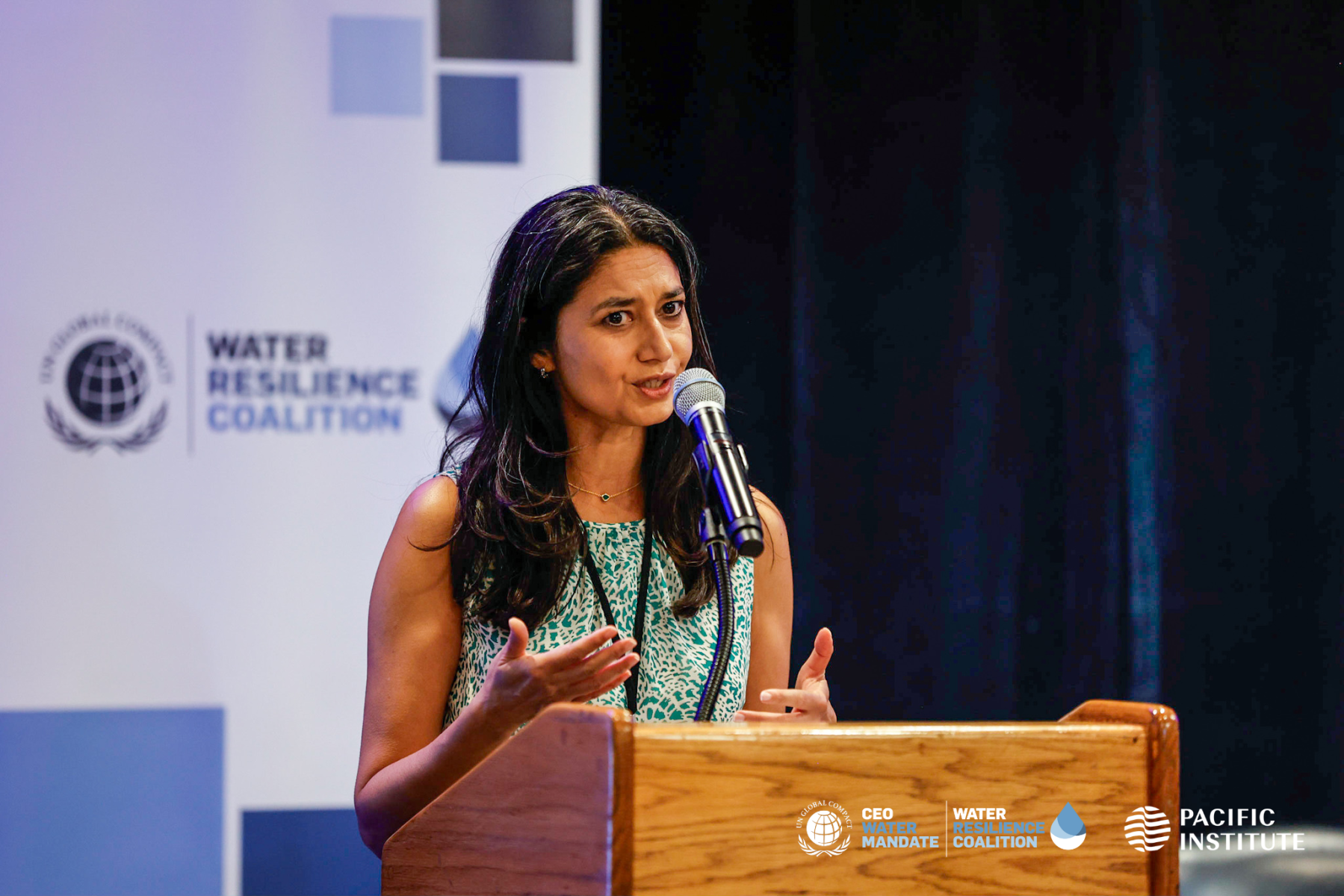
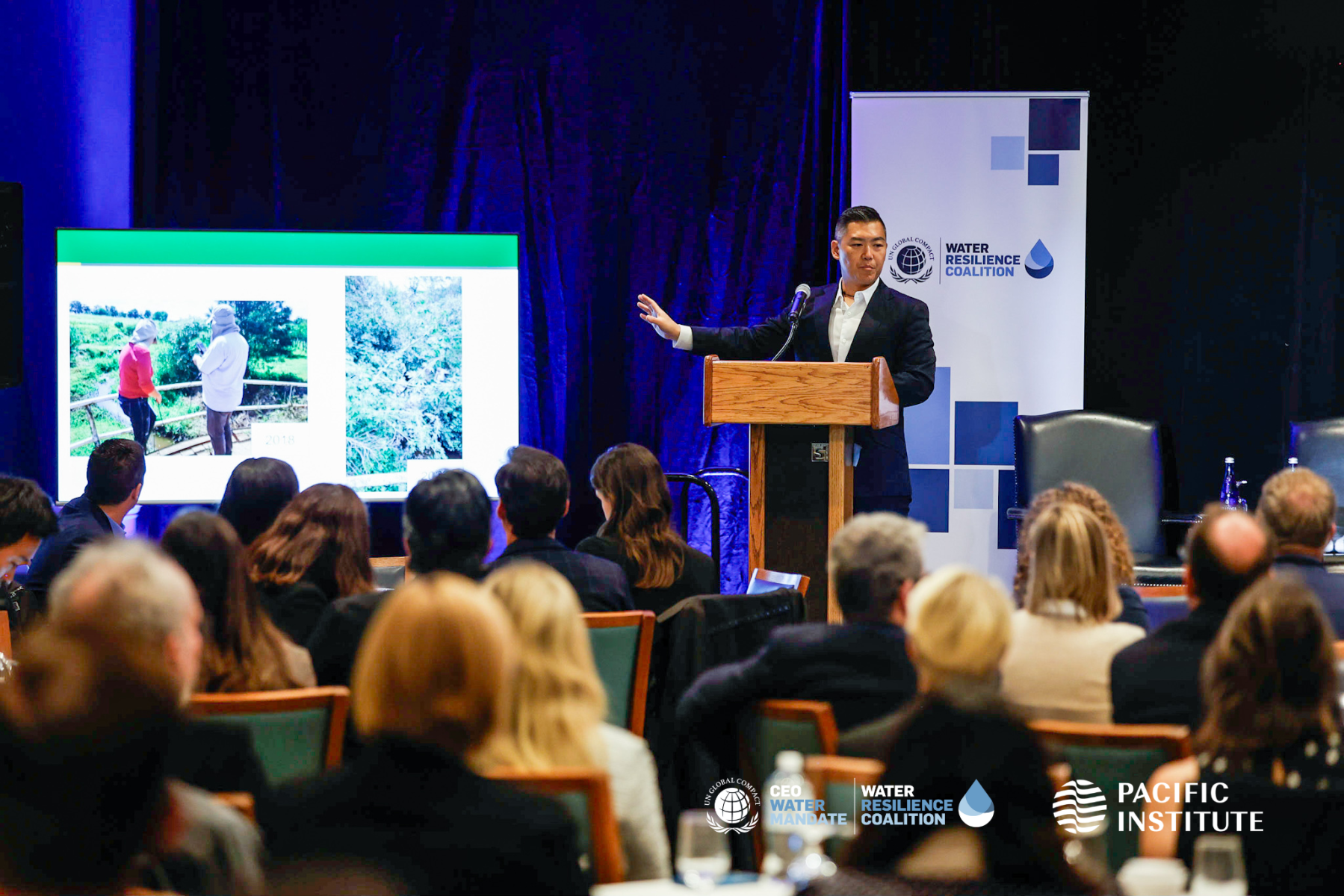
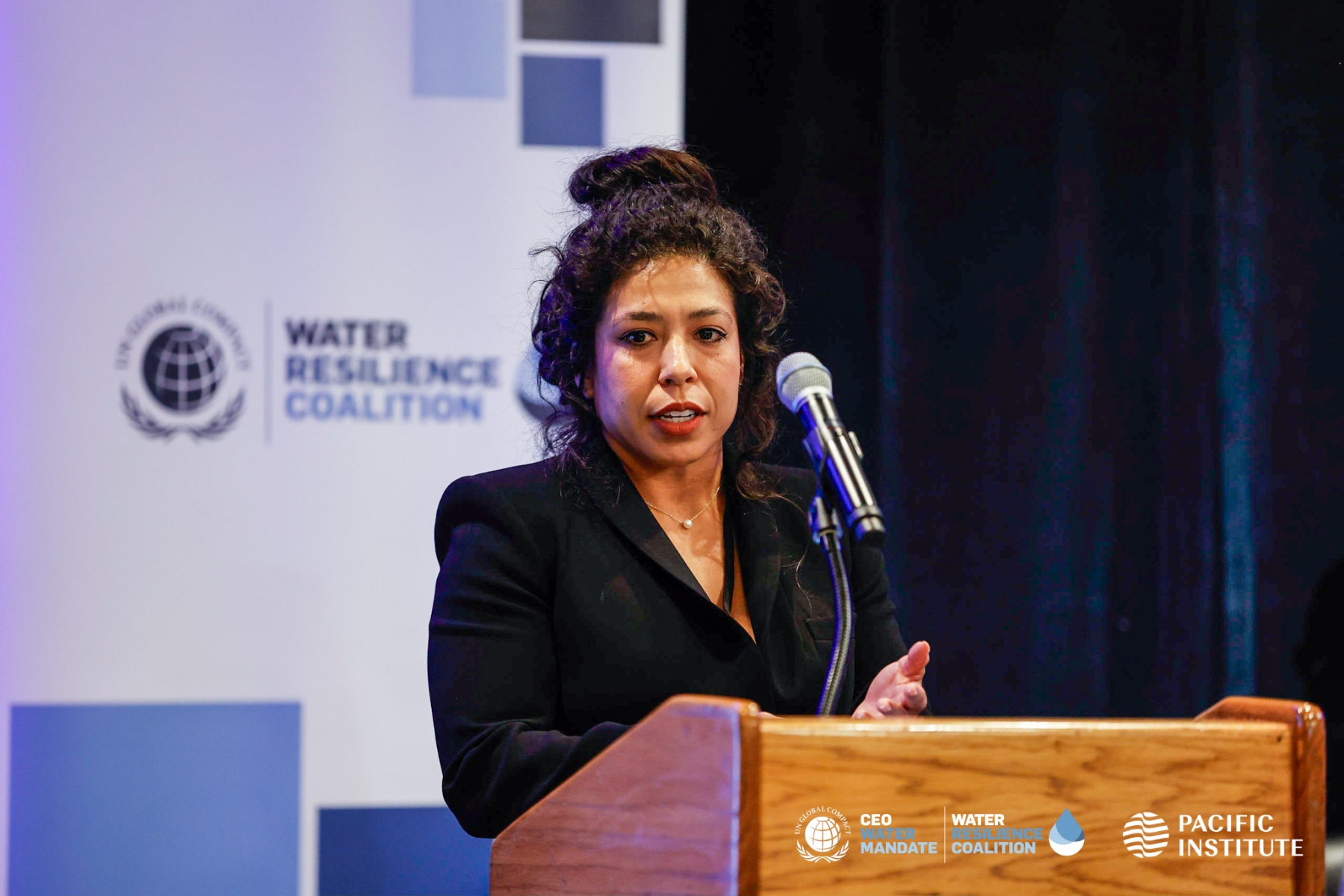
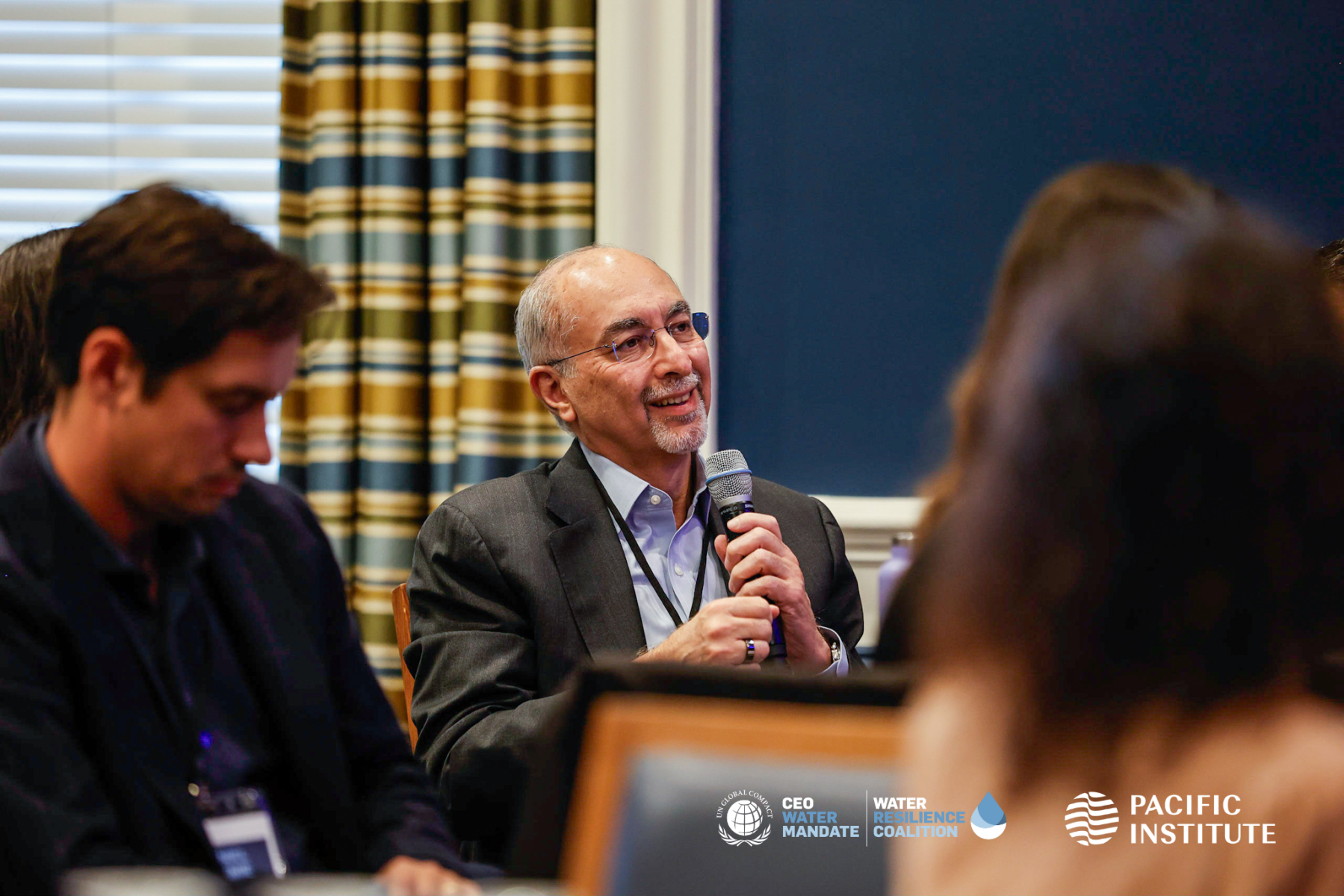
Looking Ahead
UNGA week did not merely set an agenda; it articulated a clear call to action. The ambition is tangible and achievable—with the committed vision, action, and investments of the private sector working in partnership with governments, NGOs, and other actors.
2023 has been the year of the 100-basins movement. From the launch of the Business Leaders’ Open Call to Accelerate Water Action at the UN Water Conference in March to the launch of the Forward Faster Water Resilience target in September, this momentum continues to grow.
Looking ahead to COP28 in Dubai and the World Economic Forum Annual Meeting in Davos, additional landmark opportunities are taking shape. These will solidify and expand the private sector’s commitment to water resilience and climate action. The Pacific Institute, with its legacy in water research, advocacy and thought leadership, remains steadfast in its commitment to turning these global aspirations into reality. As we stand at this inflection point, the Pacific Institute continues to champion the importance of turning commitments into tangible actions, ensuring that the Water Resilience Coalition’s collective 2030 ambition becomes a reality.
As the Pacific Institute builds its next strategic plan to guide our work through 2026, we recognize the powerful role the private sector can—and must—play to achieve SDG 6 targets by 2030. Combined with the Pacific Institute’s work across Water Efficiency and Reuse, Water and Climate Equity, and Nature-Based Solutions, we are poised to set an even higher bar for scaling solutions during the years ahead.


